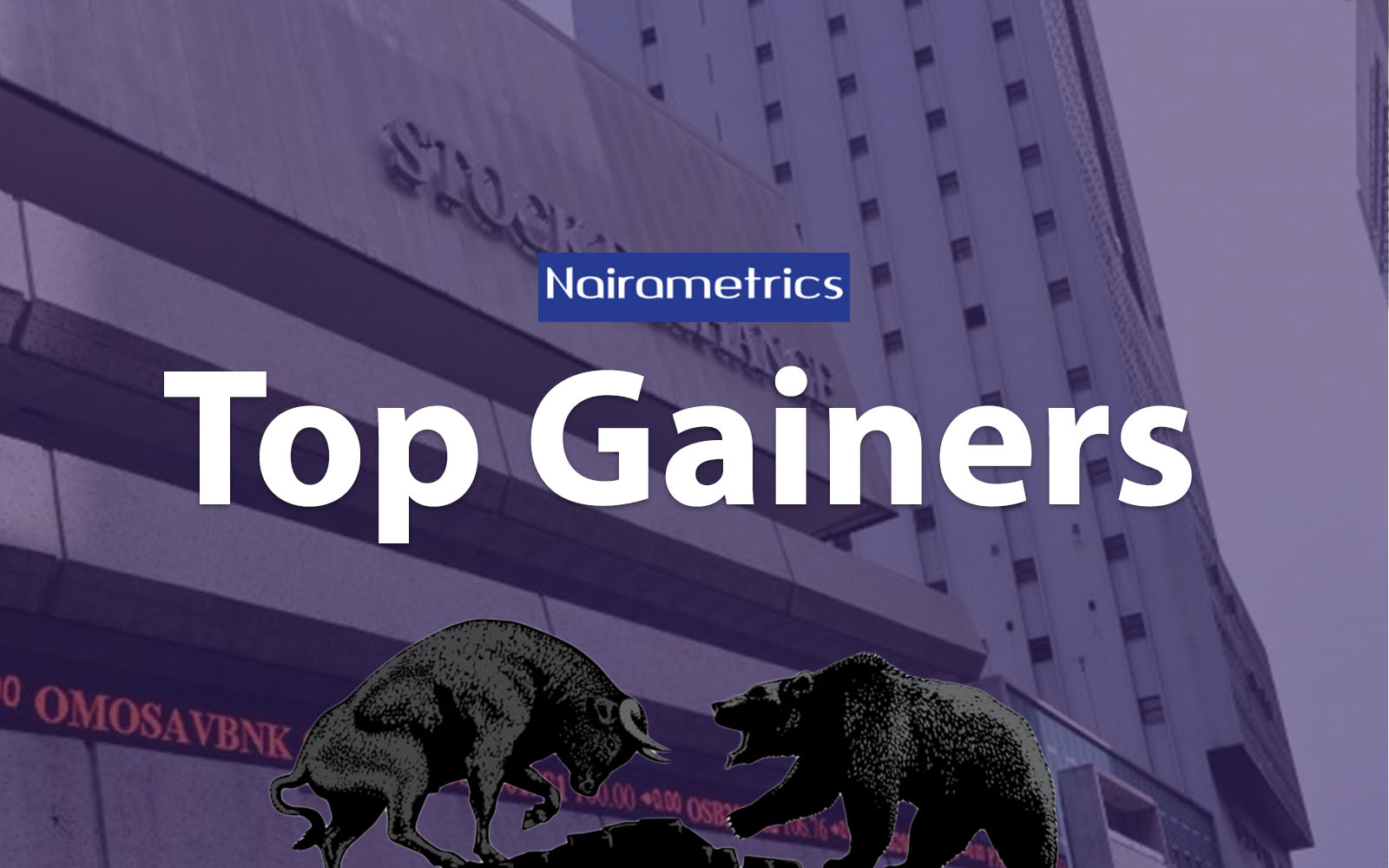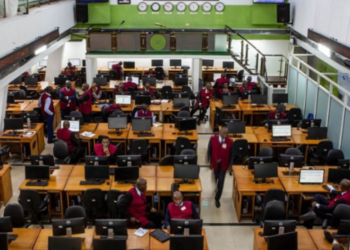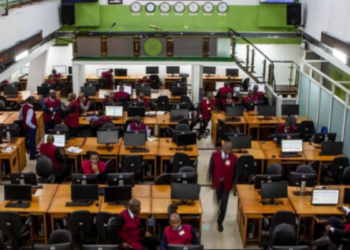The Nigerian Stock Exchange closed the week on a bearish note as the NSE All-Share Index and Market Capitalisation depreciated by 2.11% to close the week at 36,603.44 basis points. Year to date, the index is down 4.29%.
16 equities appreciated in price during the week, this is lower than 21 in the previous week. 59 equities depreciated in price, higher than 55 equities of the previous week, 94 equities remained unchanged, higher than 93 equities recorded in the preceding week.
Here are top gainers and losers in this week’s trading session:
Gainers
Linkage Assurance Plc
Linkage Assurance was the biggest gainer in this week’s trading session. The stock appreciated by 9.72%, closing at N0.79. Year to date, the stock is up 19.70%.
Sovereign Trust Insurance Plc
Sovereign Trust Insurance gained 8.70% during the week. The stock opened at N0.23 and closed at N0.25. Year to date, the stock is down 50%.
Cement Company of Northern Nigeria Plc (CCNN)
Cement Company of Northern Nigeria, also known as Sokoto Cement, gained 8.26% during the week. The stock opened at N23 and closed at N24.90, up N1.90. Year to date, the stock is up 142.1%, making it the best performing stock.
Nigerian Aviation Handling Company Plc (NAHCO)
NAHCO Aviance opened the week at N3.71 and closed at N4.00, up N0.29 or 7.82%. The company this week announced changes to its board following a new investor, Godsmart Nigeria Limited becoming the single largest shareholder, with its acquisition of a 16.67% stake. Year to date, the stock is up 0.3%.
Law Union and Rock Insurance Plc
Law Union and Rock gained 6.38% during the week. The stock opened at N0.94 and closed at N1.00, up N0.06. Year to date, the stock is up 29.87%.
NPF Microfinance Bank Plc
NPF Microfinance Bank opened the week at N1.70 and closed at N1.80, up N0.10. The stock thus appreciated by 5.88%. Year to date, the stock is up 44%.
Niger Insurance Plc
Niger Insurance gained 3.85% this week. The stock opened at N0.26 and closed at N0.27, up N0.01. Year to date, the stock is down 46%.
Africa Prudential Plc
Africa Prudential appreciated by 3.75% this week. The stock opened at N4.00 and closed at N4.15, up N0.15. Year to date, the stock is down 0.5%.
Continental Reinsurance Plc
Continental Reinsurance opened the week at N1.45 and closed at N1.50, up 3.45%. Year to date, the stock is up 14.3%.
Dangote Cement Plc
Dangote Cement rounds up our list of top 10 gainers during the week. The stock, which is the biggest by market capitalisation on the NSE, opened at N227 and closed at N234.70, up 3.39%.
The company this week released its results for the half year ended June 2018. Revenue increased from N412 billion in 2017 to N484 billion in 2018. Profit before tax also increased from N155 billion in 2017 to N185 billion in 2018. Profit after tax also grew from N109 billion in 2017 to N113 billion in 2018.
Losers
Union Diagnostic and Clinical Services
Union Diagnostics was the biggest loser this week, depreciating by 34.29%. The stock opened at N0.35, and closed at N0.23, down N0.12. Year to date, the stock is down 50%.
Capital Oil Plc
Capital Oil shed 23.33% during the week. The stock opened at N0.30 and closed at N0.23, down N0.07. Year to date the stock is down 54%
Tantalizers Plc
Tantalizers Plc opened at N0.27 and closed at N0.21, down 22.22% or N0.06. Year to date, the stock is down 58%.
Neimeth International Pharmaceuticals Plc
Neimeth lost 17.31% during the week. The stock opened at N0.52 and closed at N0.43. Year to date, the stock is down 37.3%.
Sunu Assurances Plc
Sunu Assurances (formerly known as Equity Assurance) opened at N0.24 and closed at N0.20, down N0.04 or 16.67%. Year to date, the stock is down 58%.
Lafarge Africa Plc
Lafarge Africa opened at N37.35 and closed at N32.50, down N5.00 or 13.33%. Year to date, the stock is down 12%.
Oando Plc
Oando dropped by 13.28% during the week. The stock opened at N6.40 and closed at N5.55, down N0.85. Year to date, the stock is down 7.35%.
This week, the company issued a press release debunking claims that the International London Court of Arbitration (LCIA) had ordered it to pay $680 million to Gabriele Volpi, following an investment dispute between Whitmore Asset Management Limited (jointly owned by Adewale Tinubu and Omamofe Boyo) and Ansbury Investment Inc., owned by Gabriele Volpi.
FBN Holdings Plc
First bank opened at N10.40 and closed at N9.05, down N1.35 or 12.98%. Year to date, the stock is down 4.86%.
PZ Cussons Nigeria Plc
PZ Cussons dropped by 11.58% this week. The stock opened at N19.00 and closed at N16.80, down N2.20. Year to date, the stock is down 18.4%.
Multi Trex Integrated Foods Plc
Multi Trex rounds up the top 10 losers this week. The stock opened at N0.40, and closed at N0.36, down N0.04 or 10%. Year to date, the stock is down 28%.
Multi-Trex Integrated Foods Plc was incorporated on the 30th of November 1999. The company was converted to a public limited liability company in October 2008.
In 2010, the company was listed on the Nigerian Stock Exchange (NSE). The company’s principal activities include the processing of cocoa beans, export of industrial cocoa products, as well as manufacturing and domestic marketing of cocoa-based consumer products.





















